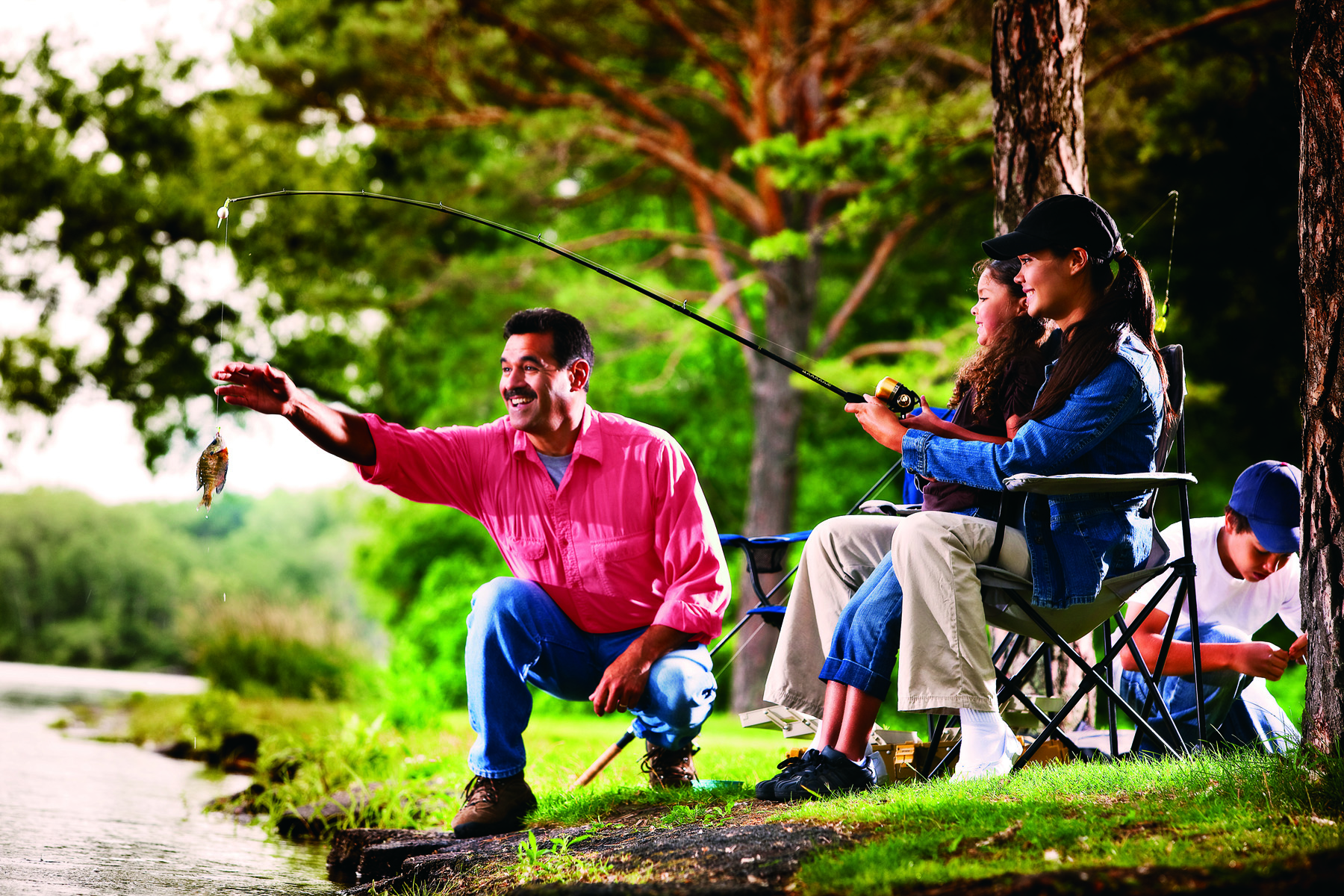Priceless Public Lands, Public Access Threatened by Senate Budget Resolution “Vote-a-rama”
Northwest Sportfishing Industry Association joined with U.S. Senators to highlight threats to America’s public lands heritage
WASHINGTON — Americans of all political stripes agree that our treasured parks and public lands, including national forests, wildlife refuges, and conservation lands, shouldn’t be sold to the highest bidder but instead protected for our children and grandchildren to visit and enjoy. Yet so me members of the 114th Congress are considering proposals to transfer public lands into private or state ownership—affecting public access and economic opportunity. Additional congressional proposals have aimed at removing protections from existing public lands and preventing the President from further protecting our parks and public lands.
me members of the 114th Congress are considering proposals to transfer public lands into private or state ownership—affecting public access and economic opportunity. Additional congressional proposals have aimed at removing protections from existing public lands and preventing the President from further protecting our parks and public lands.
It is likely that these misinformed efforts to undermine public lands protections and offer them up to the highest bidder could rear their head again this week during a process known in Washington, D.C., as the “vote-a-rama,” an all-day, and likely all-night, U.S. Senate session where lawmakers can offer an unlimited amount of amendments to the pending legislation, specifically the proposed budget resolution for fiscal year 2016. The results of these public lands votes could have devastating impacts on all Americans, and particularly those in the Western U.S., whose livelihoods depend on clean water, clean air and access to public lands.
“Our public lands are part of our Western heritage. They offer scenic beauty and a great diversity of recreational uses, and help drive local economies,” said Senator Michael Bennet (D-CO). “The Land and Water Conservation Fund has a proven track record of conserving parks, open spaces, and wildlife habitats for the benefit of future generations, without asking American taxpayers to shoulder the burden. The program doesn’t need to be reformed or amended, just reauthorized and fully funded so it can continue with its current track record of success.”
Added Senator Martin Heinrich (D-NM), “Selling off America’s treasured lands to the highest bidder would result in a proliferation of locked gates and no-trespassing signs in places that have been open to the public and used for generations. This would devastate outdoor traditions like hunting, camping and fishing that are among the pillars of Western culture and a thriving outdoor recreation economy. These lands are public, which means we each have a voice in their management. America’s forests, wildlife refuges and conservation lands are part of the fabric of our democracy. Let’s keep them that way.”
If these “vote-a-rama” amendments are similar to those introduced earlier this year, they are almost certainly reiterating long-debunked myths about our nation’s public lands.
Myth: Selling off public lands can help reduce the federal deficit
Fact: While the federal budget does have serious problems, a one-time sale of priceless public lands is not the answer. For one, it would never bring in anywhere near the money necessary, and more importantly, it wouldn’t begin to address the root of the problem: Washington’s inability to properly budget to meet its expenses. Once these lands are gone, they’re gone forever, yet the problems that forced the sale would endure. Further, the overwhelming majority of Americans opposes the idea of selling off their public lands, preferring instead to keep them protected for their children and future generations to enjoy just as they have.
Myth: The Antiquities Act is used too widely or without local input and should be reformed or even revoked
Fact: Both Democratic and Republican presidents (16 in total) have used the Antiquities Act to protect some of our nation’s most iconic places, including the Grand Canyon, Statue of Liberty, and Joshua Tree, which are now economic drivers. Citizens are calling on Washington to do more – not less – to protect our shared public lands, and public input on each of the last 16 national monument designations is well documented. Communities across America are telling Washington that they cannot afford to wait any longer while Congress is politicking; local tourism economies, clean water supplies, wildlife habitat and critical access to public lands are in the balance.
Myth: Land and Water Conservation Fund (LWCF) dollars should be used to pay down the national parks’ maintenance backlog
Fact: Royalty payments from the oil and gas industry fund the LWCF, not tax dollars. Congress intended these payments to replace the depletion of one public resource—offshore oil and gas development—through the protection of another—parks, forests, lakes, rivers, and American historic sites. Land and water conservation investments save taxpayer money, benefit local tourism economies, and provide clean air and water, all the while protecting America’s magnificent cathedrals of nature and history from development.
Americans who rely on our public lands for recreation and to make a living are also speaking out against efforts to undermine our shared national heritage.
“As a small business owner, I applaud President Obama’s designation of a unique place like Browns Canyon as a National Monument. His action helped ensure the well-being of our community, our local economy, and our children,” said Joel Benson, owner of Buena Vista Roastery in Colorado. “For more than 100 years, presidents have established national monuments through the Antiquities Act. In so doing, they have utilized their ability to ensure that these national treasures are preserved for future generations. Our Congressional leaders should listen to local residents, who have called upon them to protect Browns Canyon for the last 20 years.”
Liz Hamilton, Executive Director of the Northwest Sportfishing Industry Association, added, “Our Industry needs Congress to reauthorize and fully fund the Land and Water Conservation Fund. Anglers and hunters have greatly benefited from this program through increased access to prime outdoor recreation areas. From the Skagit River to the Lake Chelan National Recreation Area, the Land and Water Conservation Fund’s investments in habitat protection and fishing access is a big reason why Washington anglers pumped more than $1.1 billion into local economies in 2011.”
Said Max Trujillo, Sportsman Organizer for the New Mexico Wildlife Federation, “All it takes is just one trip to New Mexico for someone to see why our state is known as the Land of Enchantment. This is not a new phenomenon; New Mexicans have accessed and enjoyed our public lands for centuries, whether it be for hunting, fishing, hiking, or gathering firewood and pinon pine nuts. Congress shouldn’t be looking to sell our public lands out from under us. We need these lands to stay just as they are so my children and grandchildren can enjoy them just as I have.”
 Liz’s statement during the tele-conference:
Liz’s statement during the tele-conference:
Hello, I’m Liz Hamilton, Executive Director of the Northwest Sportfishing Industry Association – or NSIA, founded over 20 years ago by industry leaders who understood the need for a strong voice in government.
Our nearly 300 members include larger stores like Cabela’s and Dicks Sporting Goods, but most are small local businesses, family owned and operated. NSIA sectors include manufacturing, distribution, wholesale, retail and tourism.
In the Pacific Northwest, access to healthy public lands that are productive for fish and wildlife sustain tens of thousands of jobs and a way of life that keeps our citizens physically and emotionally healthy. One in 20 jobs in Oregon is related to outdoor recreation.
This is why our industry is alarmed about misguided attacks on public lands conservation programs by some out of step, or hopefully just less informed, members of Congress.
NSIA is a strong supporter of the Land and Water Conservation Fund. LWCF means clean water, vibrant salmon runs, and access to outstanding fishing.It means a strong outdoor recreation economy in the Northwest, supporting the very culture of our communities.
Even during the Great Recession, Washington anglers pumped more than 1 billion dollars into local economies on food, gas, lodging, boats and other vehicles, generating nearly 2 billion economic benefit.
Without LWCF, our industry will not be as successful. But of course, this is not just about jobs, it’s about our moral obligations and what we choose to leave to future generations.
We work in hope that a legacy of access to rivers, streams and forests continues for our children. Sadly, that also means fending off attacks on the Land and Water Conservation Fund and public lands.
We call upon our leaders in Congress to fully fund and reauthorize LWCF and please abandon rash efforts to dismantle a program that gets our nation back outside. On behalf of NSIA, I thank Senators Bennett and Heinrich for their work to protect our heritage, economy and environment.
